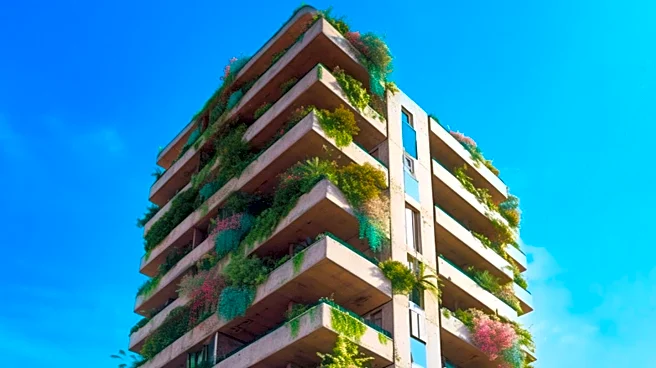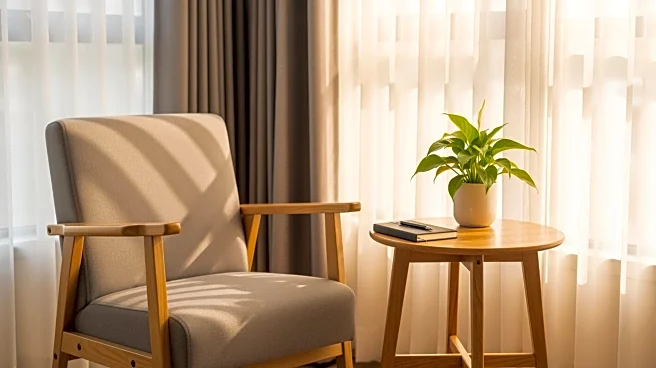What's Happening?
A condo located at 607 Manhattan Avenue in Greenpoint, Brooklyn, is on the market for $950,000. The property features modern interiors and a private outdoor space of 600 square feet. The living room is designed with recessed lighting, brick accents, and Brazilian cherry floors, complemented by a custom pure alcohol fireplace. The condo includes a well-appointed kitchen with cherry cabinetry and quartz countertops, and a recycled wood breakfast bar. The bedroom overlooks the garden, which is landscaped with over 40 types of fauna, providing ample space for personal gardening and outdoor activities. The building is eco-friendly and LEED-certified, offering amenities such as composting and an intercom system.
Why It's Important?
The listing highlights the growing trend of integrating eco-friendly features in urban living spaces. The LEED certification and energy-efficient systems reflect a shift towards sustainable living, appealing to environmentally conscious buyers. The private garden offers a rare opportunity for city dwellers to enjoy nature, enhancing the property's appeal in a densely populated area like Brooklyn. This development may influence future real estate projects to incorporate similar green features, potentially impacting urban planning and environmental policies.
What's Next?
Potential buyers interested in sustainable living and outdoor spaces may find this property appealing. The real estate market in Brooklyn could see increased demand for eco-friendly homes, prompting developers to prioritize green certifications and energy-efficient designs. As urban areas continue to grow, the integration of nature into living spaces may become a standard expectation, influencing future architectural trends and city planning.
Beyond the Headlines
The emphasis on eco-friendly living in urban environments raises questions about the long-term sustainability of city life. As more properties adopt green certifications, there may be broader implications for environmental policies and urban development strategies. This trend could lead to increased investment in green technologies and infrastructure, promoting a healthier and more sustainable urban lifestyle.









